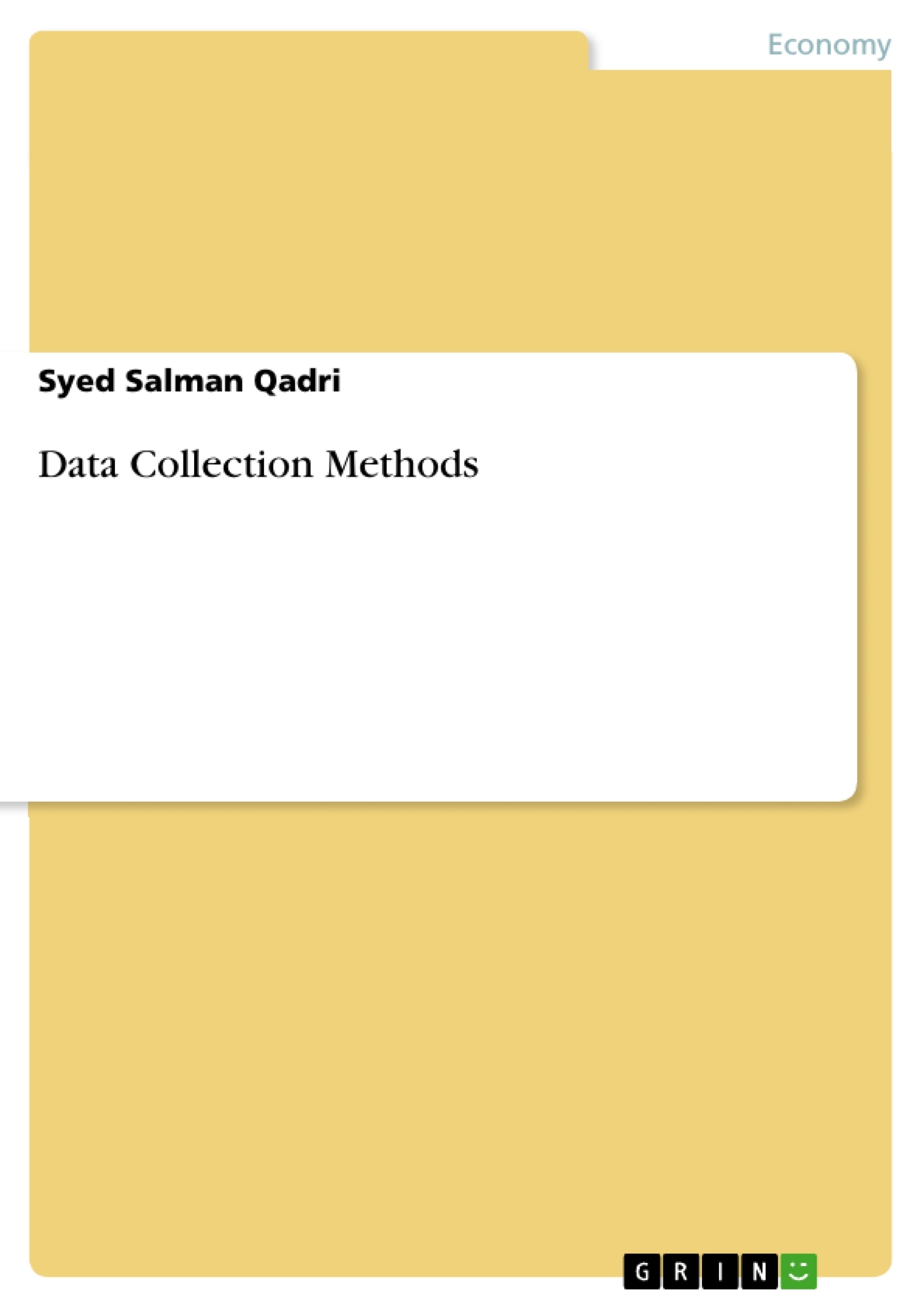Data collection is define as the methodology of gathering, estimating and investigating precise experiences for research utilizing standard approved procedure. A researcher can assess their hypothesis based on gathered informational data. The data collection components of research is basic to all fields of study including physical, sociologies, arts, business and so on while strategies differ by discipline, the accentuation on guaranteeing exact and genuine assortment stays as before. The gather information, social researchers utilize various diverse information assortment techniques. Number one is experiments and semi-experiments are important in light of the fact that they commonly include a research plan that permits solid easygoing deducting. And secondly is surveys utilizing organized polls are another significant information assortment technique since they regularly include gathering information on an enormous number of factors from a huge and delegate test of reacts. And the third one is, with in a subjective research plan the information assortment system regularly includes gathering a lot of information, on a fairly small, sample utilizing methods, for example top to bottom meetings, perception, or center gatherings ( (joop j .Hox, 2005).
Table of Contents
- Introduction
- Data
- Need of Data collection
- Importance of data collection
- Assumptions
- Objectives of Data collection
- Advantages of Data collection
- Types of Data collection
- Primary Data
- Primary Data Collection Method
- Survey Method
- Personal Interview
- Through Questionnaires
- Face to Face Interview
- Mail Survey
- Telephone Interview
- Observation research Methods
- Direct Observation
- Mechanical observation
Objectives and Key Themes
This review article focuses on data collection methods, exploring their significance in research and outlining the various techniques employed to gather reliable information. It aims to provide a comprehensive overview of the importance, advantages, and types of data collection methods.
- The role of data collection in research
- Different types of data and their collection methods
- The importance of reliable and accurate data collection
- The advantages of using various data collection methods
- The use of primary and secondary data collection techniques
Chapter Summaries
The introduction defines data collection as a fundamental methodology for gathering and analyzing information, highlighting its relevance across various academic disciplines. It underscores the importance of ensuring accuracy and validity in data collection.
The section on "Data" defines data as units of information, often numerical, gathered through observation. It clarifies the concepts of data and datum, emphasizing the role of data in forming insights about individuals or objects.
The importance of data collection is emphasized, highlighting its role in making informed decisions, identifying problems, developing accurate theories, and backing up arguments. The section on "Assumptions" outlines key assumptions underlying data collection methods.
The objectives of data collection are outlined, emphasizing the need for data-driven decisions and reliable information for research. Advantages of data collection are explored, showcasing its role in analyzing business decisions, making improvements, and using information to gain an advantage.
The "Types of Data Collection" section differentiates between primary and secondary data, while the "Primary Data Collection Method" section delves into survey methods, including personal interviews, questionnaires, face-to-face interviews, mail surveys, and telephone interviews. Finally, the section on "Observation research Methods" explores direct and mechanical observation techniques.
Keywords
The central keywords and focus topics of this text include data collection, research methodology, primary data, secondary data, survey methods, observation methods, personal interviews, questionnaires, direct observation, mechanical observation, data analysis, informed decision-making, and research objectives.
- Quote paper
- Mphil Business Administration Syed Salman Qadri (Author), 2021, Data Collection Methods, Munich, GRIN Verlag, https://www.grin.com/document/1035005




